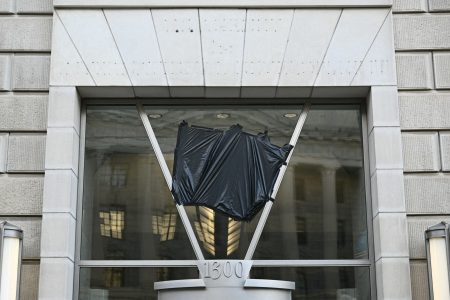Border Patrol Chief Jason Owens expressed excitement over the appointment of Tom Homan as the incoming Trump border czar, highlighting the former Border Patrol agent’s experience and potential impact on deportations and border security during an interview with Fox News. Owens emphasized that deportations are a consequence of not following laws and entering the country illegally. He acknowledged tensions between Border Patrol agents and the Biden administration, as well as the challenges faced by agents dealing with record encounters at the southern border. Despite recent declines in numbers due to policy changes, Owens cautioned that cartels are adapting their tactics to circumvent border security measures, with fentanyl and the Venezuelan gang Tren de Aragua posing significant threats.
Tren de Aragua, a violent Venezuelan gang known for criminal activities across the U.S., including in states like Colorado, has become a top priority for the Border Patrol due to its impact on public safety. Owens also highlighted the issue of 250,000 “gotaways” – individuals who evade apprehension at the border, posing unknown risks to national security. The chief emphasized the importance of understanding the intent of individuals attempting to enter the country illegally, particularly from countries with limited diplomatic relations that make vetting more challenging. He expressed concerns about the potential harm that could be inflicted by threats that go undetected, emphasizing the overall goal of border security to protect American citizens and prevent harm.
Owens recognized the uncertainties and dangers faced by law enforcement and border security professionals in addressing threats that continue to evolve in response to increased surveillance and technology. He stressed the importance of vigilance and cooperation to prevent any potential failures in apprehending threats that could have devastating consequences for individuals and national security. The chief emphasized the need to focus on deterring illegal entry and ensuring that individuals use legal channels to come into the country, underscoring the critical role of law enforcement in protecting the nation from harm. He reiterated the commitment of border security agencies to safeguarding the country and preventing criminal activities that pose a danger to American citizens.
The chief’s concerns and priorities reflect the ongoing challenges faced by Border Patrol agents in maintaining border security and addressing threats posed by criminal organizations like Tren de Aragua and the trafficking of dangerous substances like fentanyl. Owens emphasized the importance of staying ahead of evolving threats and adapting strategies to protect against potential risks that may harm individuals and communities. His acknowledgment of the dangers posed by individuals who evade detection at the border underscores the need for continuous efforts to enhance surveillance and enforcement measures to address illegal activities and safeguard the nation from potential harm. Overall, Owens’ insights highlight the complexities and responsibilities inherent in maintaining effective border security and protecting the country from external threats.










